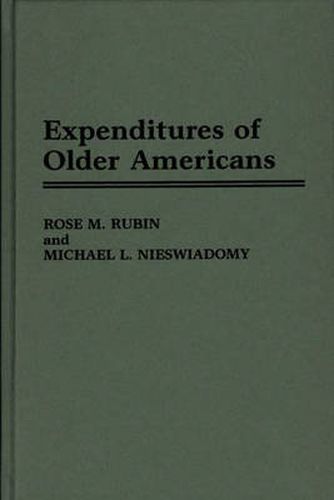Readings Newsletter
Become a Readings Member to make your shopping experience even easier.
Sign in or sign up for free!
You’re not far away from qualifying for FREE standard shipping within Australia
You’ve qualified for FREE standard shipping within Australia
The cart is loading…






Aging in America imposes dramatic personal, social, and economic changes. Retirees have substantial power to affect both business and public policy decision making. This book analyzes the expenditure patterns of older households to characterize their comparative lifestyles and quality of life. Expenditure patterns of various elderly households are examined over time and compared with the non-elderly. Particular emphasis is placed on analysis of necessity and health care expenditures.
The authors empirically test the dominant theories of consumer life-cycle behavior. They conclude that these theories do not provide a consistent explanation for the expenditures of heterogeneous age and income groups and that alternate theories-the precautionary theory of elderly savings or the theory of positional goods-have credence.
$9.00 standard shipping within Australia
FREE standard shipping within Australia for orders over $100.00
Express & International shipping calculated at checkout
Aging in America imposes dramatic personal, social, and economic changes. Retirees have substantial power to affect both business and public policy decision making. This book analyzes the expenditure patterns of older households to characterize their comparative lifestyles and quality of life. Expenditure patterns of various elderly households are examined over time and compared with the non-elderly. Particular emphasis is placed on analysis of necessity and health care expenditures.
The authors empirically test the dominant theories of consumer life-cycle behavior. They conclude that these theories do not provide a consistent explanation for the expenditures of heterogeneous age and income groups and that alternate theories-the precautionary theory of elderly savings or the theory of positional goods-have credence.